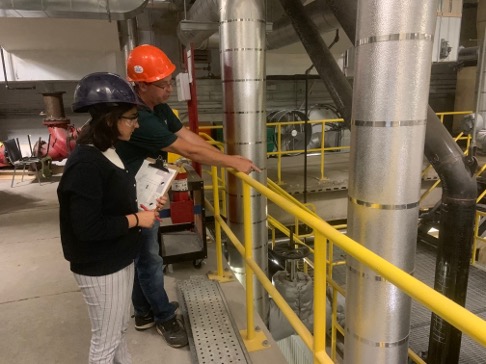Actions
Operations Changes
Progress has been made in establishing an energy management plan, program and information system (EMIS). Operational standards, preventative maintenance programs, and training will support energy and water efficient measures in operations.
University Plans
Embedding climate change mitigation and adaptation considerations and strategies in core university plans is important for comprehensive integration.
Key plans include:
University, Facilities, and Sustainability Strategic Plans
Emergency Measures Plan
Risk Management Plan
Design Guidelines
Facilities Management provides design standards (link to FM’s Design Guidelines page) for building projects. Updating these standards to meet and beat energy, water and sustainability performance metrics is an important strategy.
Space Utilization
Maximizing existing space is a key strategy to avoid unnecessary building and to maximize underutilized space. Audits of space and equipment can be conducted to determine saving strategies for implementation including hybrid work.
ReThink Program
The Office of Sustainability and campus partners run regular behavioural programming under the banner of ReThink. We strive to increase the offerings from the ReThink program including:
- sustainability teams,
- energy competitions,
- social marketing tools,
- residence eco-olympics,
- employee sustainability education and events opportunities,
- and green labs.
Ongoing Curriculum & Research
Faculty, staff, students, and community partners are working together through class focused projects using the campus as a living laboratory.
Student interns have been hired to research topics such as:
climate modeling
life cycle impacts of fuel types
carbon offsetting
climate adaptation visualization
In recent years, specific focus has been placed on creating research and teaching spaces in new buildings and outdoor environments. Opportunities exist to expand on this approach creating a more cohesive program that engages more students.
Targets
Greenhouse Gas (GHG) reductions
2020 - 2030: 500 tonnes
2030 -2040: 500 tonnes
2040 - 2050: 400 tonnes
Total: 1400 tonnes
Adaptation
Knowledgeable, prepared, and proactive employees and students who react swiftly to solve energy and climate emergency issues.
